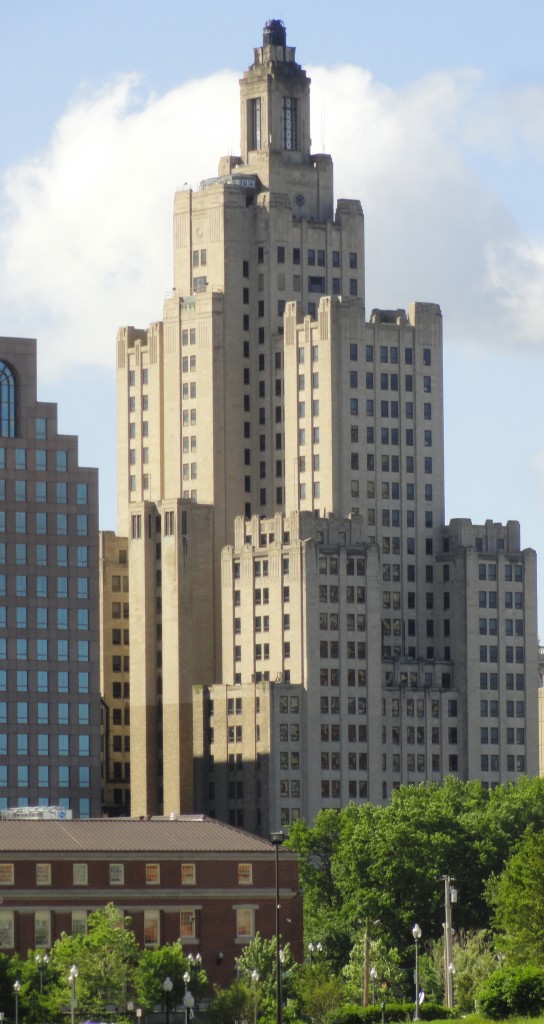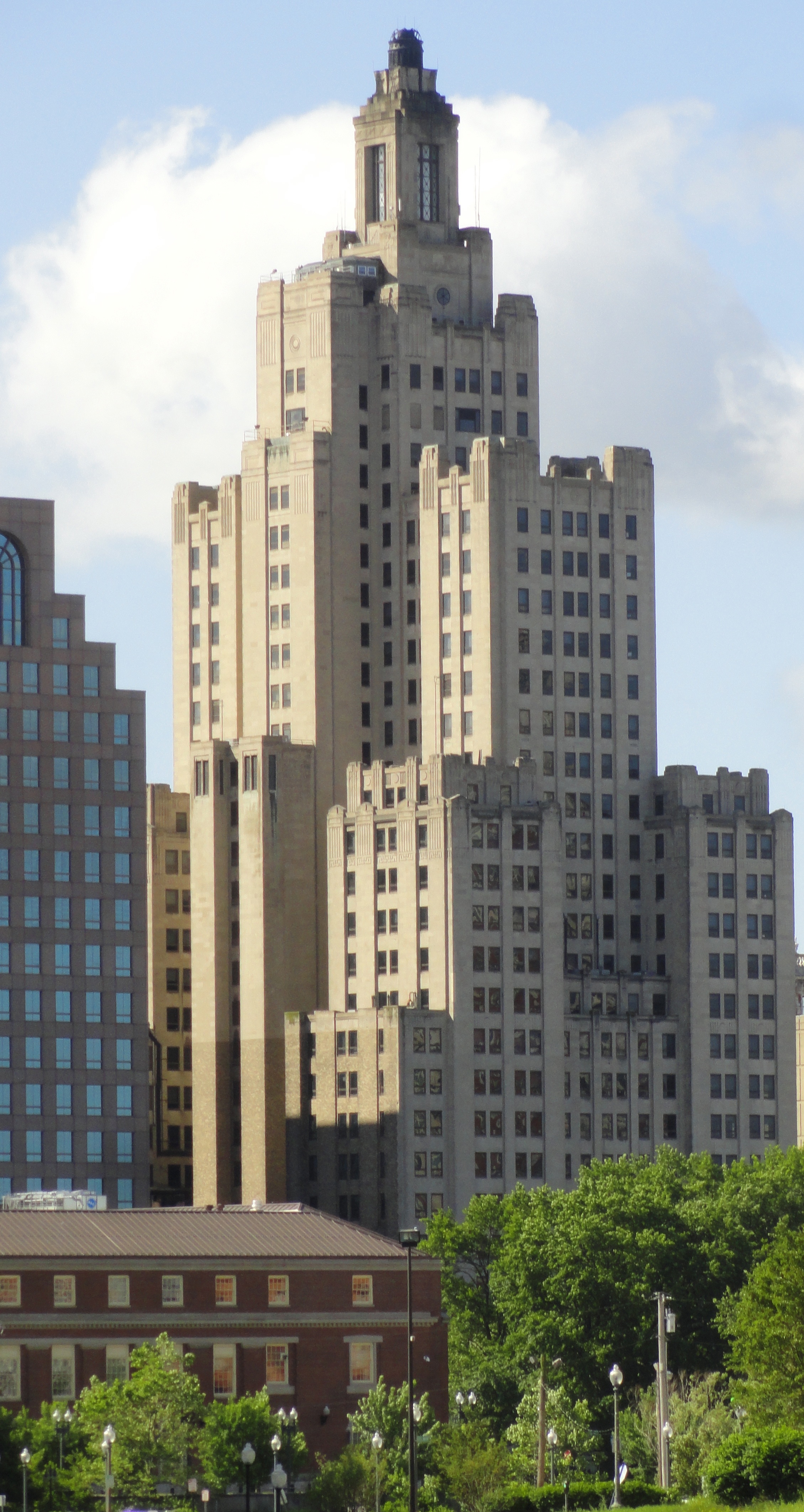
PolitiFactRI has a history of sloppy reporting and conservative bias that has generated national attention. But a piece on whether developers deserve huge cash handouts broke new ground.
It centers around David Sweetser, the principal owner of the Superman Building. Controversially, Sweetser has refused to renovate the building or bring in tenants until the city and state agree to pay him tens of millions of dollars in taxpayer money—considerably more than the purchase price.
When Ed Fitzpatrick at the Providence Journal reported on the Superman Building, Sweetser gave him a classic defense. As Fitzpatrick wrote: “Sweetser, who lives in Wellesley, Massachusetts, said the reality is that Boston is just 60 minutes away and it’s offering subsidies to developers who can charge higher rent than you can get in Providence, while construction costs are more or less equal.” PolitiFactRI rated Sweetser’s defense true. This is an important claim to unpack because it’s one of the most common arguments big Rhode Island developers use in their quest for taxpayer cash. It’s also extremely misleading.
To begin with, what makes Boston real estate so expensive is not the cost of construction. It’s the cost of land. The whole point of this developer talking point is to imply that overall costs are no higher in Boston–something that is definitely not true.
PolitiFactRI does not address this point. Instead, they zero in on whether construction costs are higher. So how does PolitiFactRI seek to answer this question? Do they consult some unbiased labor cost index? No, they just ask the Gilbane Corporation—one of the biggest developers in Rhode Island.
Interestingly, Gilbane does not say construction costs are identical. They say there is, in fact, a “slight overall difference.” But they also say, “When it comes to larger more complex projects costs are roughly the same.” If Gilbane shared any hard numbers, PolitiFactRI neglected to print them.
Now, Massachusetts is a considerably wealthier state, with stronger unions and a slightly higher minimum wage. It would be odd if labor costs were not slightly higher in Boston. But just how big that difference is is an interesting question. Unfortunately, PolitiFactRI does not give us a number.
Finally, there is the question of subsidies in Boston. PolitiFactRI asks Nicholas Martin, the spokesman for the Boston Redevelopment Agency. He says, “I would not hesitate to say that the majority of construction that’s going on in the city of Boston is not subsidized,” although he does clarify that some big projects do get subsidies.
Boston certainly does offer some absurd subsidies, but the situation today is nothing like Providence, where pretty much every big project gets a special tax break. Boston does lots of developments without subsidies, and they even make Fenway stadium pay taxes.
Under liberal Governor Michael Dukakis, the Massachusetts economy went through a huge boom called the , and the state now has quite a strong economy. That’s why the state has a strong housing market. Like Rhode Island today, Massachusetts used to struggle with conservative Democrats who opposed good policy. Ronald Reagan called Governor Edward King, Dukakis’s rival, his “favorite Democrat,” and King formally became a Republican after Dukakis beat him in the 1982 primary. Today, the Massachusetts legislature is filled with solid real Democrats like Senate President Stan Rosenberg. And the state is thriving, especially when compared to Rhode Island.
If Rhode Island wants to learn a lesson from Massachusetts, we should try breaking the machine and electing real Democrats.

